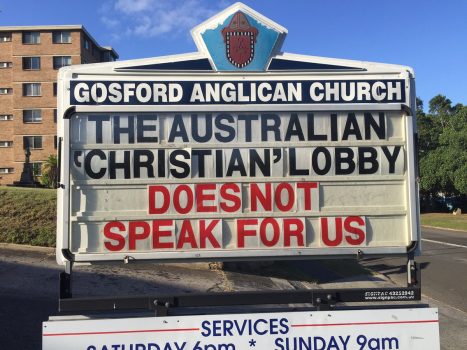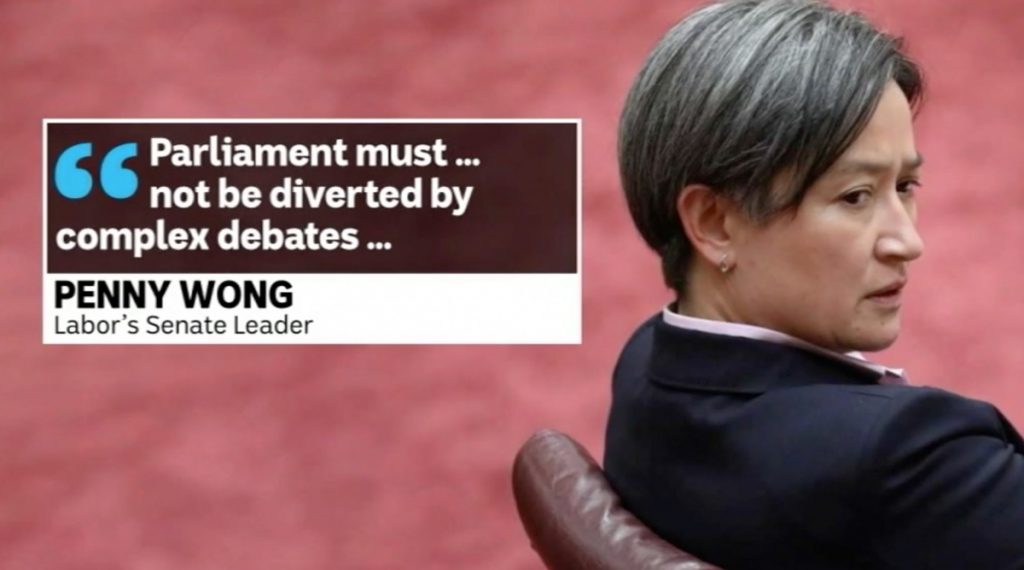A New Movement of Rights and the Right in Australia

Scholars have wondered what “triggers” might be in the social furniture of a culture that might propel a people to embrace a bill of rights. Australia remains proudly, and idiosyncratically, opposed.
Previous efforts to enshrine a charter of rights have failed, accused of being totalitarian usurpations, dangerous incorporations of foreign laws, and a straightjacket on political will. Rights, in actual fact, are considered the smutty sprinklings of a suspicious mind, best modified by a fatherly obsession with obligations.
No trigger for a bill of rights will move the Australian people; no catalyst great enough to warrant a deviation from an unswerving faith in the magic of the common law, and the wisdom of British-made institutional stability. The indefinite detention of refugees will be tolerated. Shabby treatment of terrorist suspects will be permitted. The advice of the Australian Secret Intelligence Organisation will be given greater weight than solid judicial review.
Suspicious about the abstract, fundamentalist pragmatism demands something that issues from Parliament which, the assumption goes, tends to be reasonable. The soil, however, is due for a fresh turning. This time, it is the turn of the conservatives, who feel that that their social offensives have failed before the might of the Rainbow movement. Conservatives, rather than accepting the findings of a postal survey on same-sex marriage, have decided to frame the problem differently. Now, their rights are in question.
From a position of strength, they feel weakness, vulnerability, a fear that sanitised prejudice may not be possible. But importantly, the issue here is one of translation and political realisation: How will those conservative, religious voices find form in the parliaments across the country?
The fascinating problem here is that such conservative voices have made a category error in the legal sense. It is not a “right” to not do (bake cakes for a gay wedding, for instance, or celebrate a wedding), but a “power” to do (in this case, refuse to serve). It is the power to discriminate, to seek a different avenue of traditional recognition of a form of conduct, covered by that oft misused term of conscience.
Whatever the lexical problems faced by members of the Australian Christian Movement, and for that matter other religious groups, they are on to something. The postal plebiscite may well have registered overall approval – 62 per-cent – but it also suggested that 38 per cent of Australians are far from content with changing the heterosexual context of the Marriage Act. The stage props are set for splinter parties and religious groups to make their political debut, most notably in those electorates where the No vote registered a majority.
In the federal seat of Blaxland, which registered the highest vote against same-sex marriage coming in at a dizzy 73.9 per cent, celebrations are absent and trouble brewing. The students at the Bankstown campus of the Western Sydney University were noted in the Huffington Post as “visibly shaken”.
The showers of analysis that have followed have had to find some coherence to such votes. “Cultural differences” have been underlined and jotted down as culprits. This, goes the Huffington Post, comes with “the obvious conclusion that migrants have homophobic values, spurred on by their homophobic religions.”
This leads to another tendency: the pointed accusation that estranged, pontificating elites of the affluent areas enjoy a pastime that has become staple for the set: “Western Sydney bashing”. Class divisions are blended with value divisions, creating a new political mix.
While this takes place, the conservative Australian government is suffering fits of indigestion. Many of its members were vocal opponents of same-sex marriage, and continue to be. Opinions sent in by vote hardly matter – they were always intent on voting against the same-sex change. Having been outgunned, another approach, most probably legislative in nature, is in order.
One concern is to trumpet religious freedom amendments that will be added to any legislation that will change the definition of marriage. These will include provisions permitting civil celebrants to reject weddings and protections for religious charities (Interestingly enough, such entities already have considerable scope in terms of choice).
Nationals Senator Matt Canavan is one such figure. Suddenly, talk of rights is not obscene or questionable. The International Covenant on Civil and Political Rights, a document long regarded as a nuisance by Australian parliamentarians, is being seen as a guide.
Article 18 claiming that “everyone shall have the freedom of thought, conscience and religion” is being singled out for special mention. As Treasurer Scott Morrison has insistently pushed, “There are over 4 million people who voted No in this survey who are now coming to terms with the fact that, on this issue, they are a minority.”
Whatever changes occur to the Marriage Act proper, political momentum for a different type of conservatism has been generated. It may well come from the self-designated “standing army” of the Australian Christian Lobby, or from other sources keen to foment an alternative narrative. The political fault line, overseeing the creation of a more religious orientation keen on social and moral values, may well be in the offing. Without realising it, those behind the same-sex marriage have become the progenitors of a new political impetus in Australia.

Like what we do at The AIMN?
You’ll like it even more knowing that your donation will help us to keep up the good fight.
Chuck in a few bucks and see just how far it goes!
Your contribution to help with the running costs of this site will be gratefully accepted.
You can donate through PayPal or credit card via the button below, or donate via bank transfer: BSB: 062500; A/c no: 10495969










8 comments
Login here Register here-
flohri1754
-
diannaart
-
Phil
-
OPPOSE THE MAJOUR PARTIES!
-
Kronomex
-
jimhaz
-
Kronomex
-
Freethinker
Return to home pageThoughtful … most interesting when the shoe is on the other foot. Increasingly my conclusion is that a conservative’s lack of ability to empathize is directly proportional to how likely their own bubble is to being affected by something. IF that something (no matter how atrocious or horrendous) doesn’t seem to bother them or anyone close to them, they show no concern. However, once that same something begins to inch closer to them, whoa!
@floril754
I am just waiting for when climate change really bites the ultra-conservative – not all of them are wealthy enough (is anyone wealthy enough?) to merely shrug shoulders and ignore global changes.
Indeed – more thoughtful writing – love this thought – “a fear that sanitised prejudice may not be possible” I think this hits the nail cleanly on its head.
The lead photograph of Gosford Anglican Church shows what a progressive Christian denomination that church is – puts most others to absolute shame
‘Australia remains proudly, and idiosyncratically, opposed’. No it doesn’t . The people are for it yet have been deprived of the opportunity to vote on a charter/bill of rights – either in a legislative format, such as in the UK Bill of Rights Act or the Victorian and ACT Human Rights Acts, or by inclusion and hence amendment of the Constitution – by politicians and the major parties. The major parties do not want people to have civil rights because they would undermine their power to cancel or negate civil rights or do what they will with the few rights Australians have at common law.
It’s well worth reading Doug Cameron’s speech about SSM and then having at a look at the bile and crap that Fierravanti-Wells spews. Yes, according to her it’s Labor and the Greens fault (no surprise there).
http://parlinfo.aph.gov.au/parlInfo/search/display/display.w3p;query=Id%3A%22chamber%2Fhansards%2Fd0612196-7e36-4c16-bdc8-e2f1f06b87b8%2F0118%22
Pawween Hasnone makes the shortest speech. Again no surprise.
[This, goes the Huffington Post, comes with “the obvious conclusion that migrants have homophobic values, spurred on by their homophobic religions.”]
Obvious as it is true. But for me excessive immigration from poor countries also makes WS anglos more boganish as a reactrion to the clear cut invasion – and working bogans tend to be anti-left.
So the balding coconut made a “powerful” speech –
http://www.smh.com.au/federal-politics/political-opinion/attorneygeneral-george-brandis-powerful-samesex-marriage-speech-in-full-20171128-gzu669.html
Doug Cameron’s speech was about the same length than Brandis’s overblown talking and made more of impact than…oh wait…he’s not LNP and therefore not worthy of mention the SMH and Murdoch’s (except to be rubbished by the latters rags) papers. Silly me.
One thing that made me sick is Brandis giving the credit yo Turnbull for the same sex marriage.